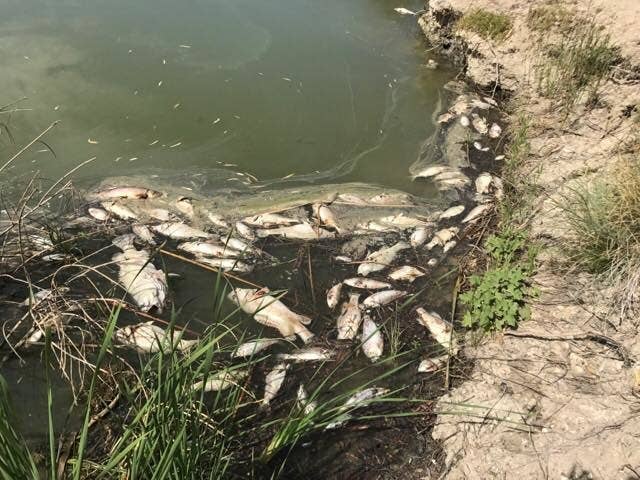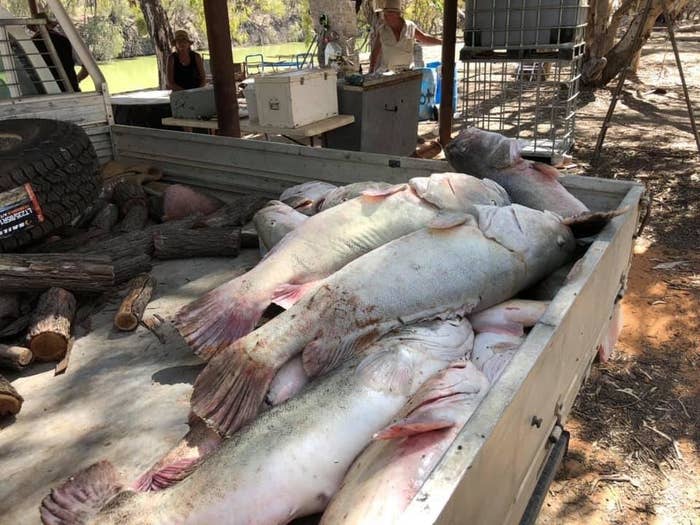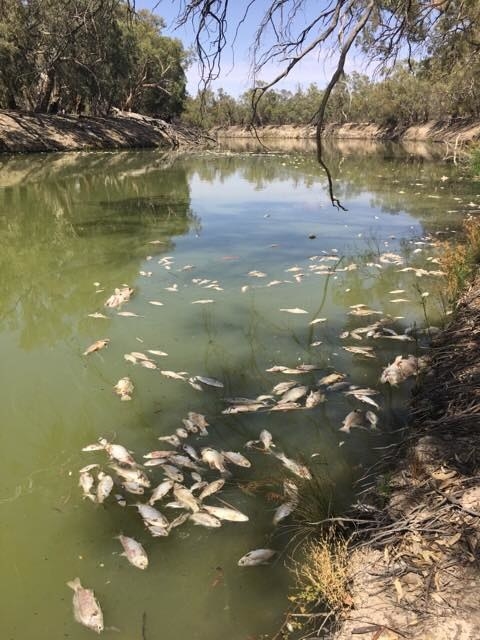
A million fish have died in a stretch of the Darling River near Broken Hill after a blue green algae bloom starved the underwater environment of oxygen.
The mass death occurred early this week across a 40-kilometre stretch of the river next to the small town of Menindee.
Murray cod and perch have died in large numbers in the event, with locals saying that cod over 50 years old and weighing upwards of 40kg have died.

Katharine McBride, a pastoralist from local Tolarno Station, told BuzzFeed News that there is a "really strong stench" coming from the river and the Menindee residents have been upset by the loss.
"It's really devastating to see this and to see so many fish dead and know what the impact of that is going to be into the future for our kids and grandkids," said McBride.
Blue green algal blooms occur when there is an excess of nutrients (caused by fertiliser run-off from farms), high temperatures, and low rainfall.
Algae growth kills other plants, resulting in more dead organic matter that feeds bacteria and encourages their proliferation; when the bacteria use up the dissolved oxygen in the water, aquatic animals are suffocated.
The immediate trigger for the deaths of the fish in the Darling River was a cold snap that killed a lot of the blue green algae, leading to more dead organic matter and further depriving the system of oxygen.
This is the second mass death of fish in the Darling River in two months – in December 10,000 fish died along a 50-kilometre stretch in the Menindee region.

This year's mass fish death is being blamed on poor water management by the locals. WaterNSW have been releasing water from the Menindee Lakes since late 2017 and allowing large amounts of upstream extraction.
According to WaterNSW there is only 3.2% of the total water capacity left in Menindee Lakes.
The CSIRO told the ABC that this increased regulation of river water and restricted water flow from low rainfall have caused an increased number of algal blooms in recent years in the Murray-Darling Basin.
"We're really angry about it because we know that this is not a natural disaster, this is a man-made disaster," said McBride.
"We really want to make sure that we change the way the lakes are managed so that we never see this again because it's just heartbreaking."
The Minister for Primary Industries, Niall Blair, said that the fish deaths were a result of a six-month drought in the region, which had reduced water flow significantly.
Blair said that the Department of Primary Industries (DPI) would assist local communities with the clean-up and that recovery for the river should address facts and not involve "political scaremongering".
McBride said that in a region where "it is not uncommon" for days to reach 45C and over during summer, the river is a place to socialise and enjoy on hot days and without it, the town has lost a "point of sanity and point of humanity".
